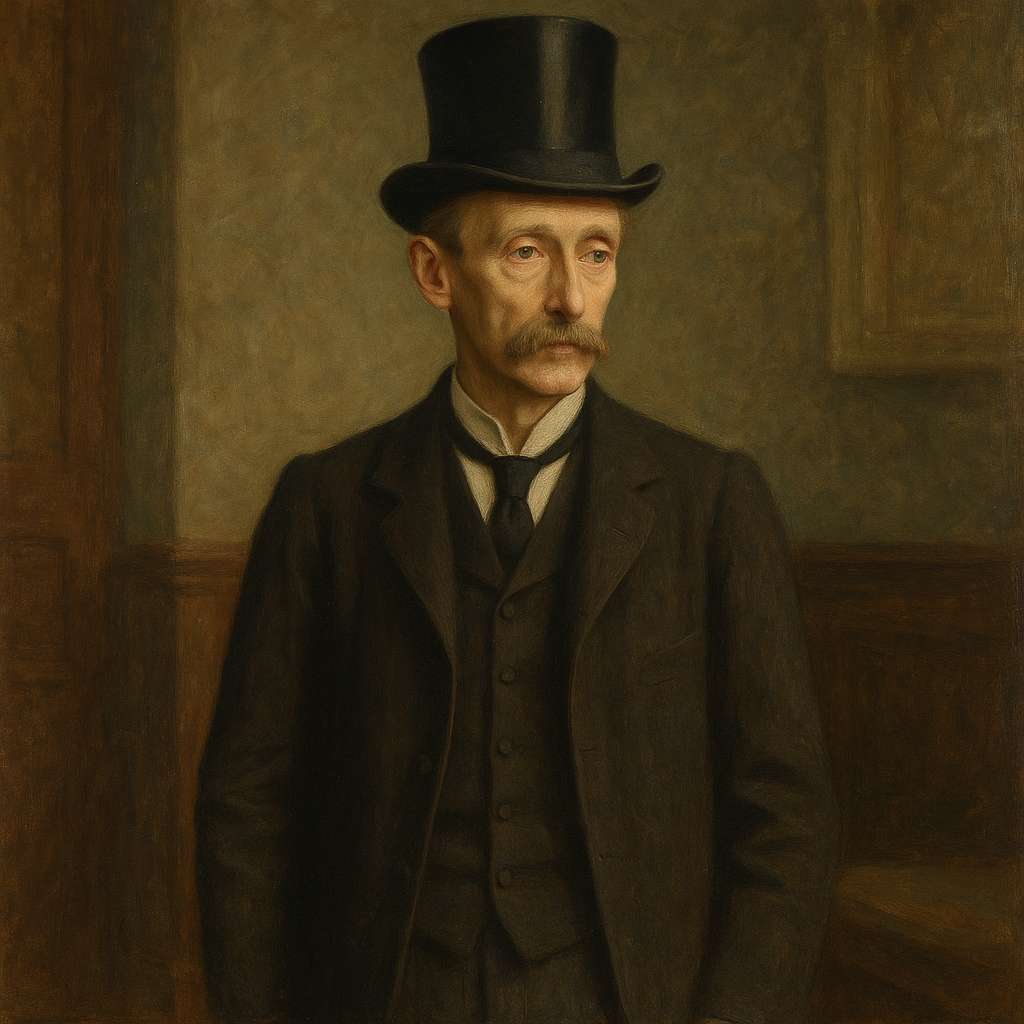1 Poems by Francis William Bourdillon
1852 - 1921
Francis William Bourdillon Biography
Francis William Bourdillon, an English poet, translator, and scholar, was born on March 22, 1852, in Runcorn, Cheshire. His life and work, though not as widely recognized as some of his contemporaries, offer a fascinating glimpse into the literary landscape of late Victorian and Edwardian England. Bourdillon's contributions to poetry, particularly his exploration of love, nature, and the human condition, continue to resonate with readers and scholars alike.
Born into a family with a strong clerical background, Bourdillon was the son of Rev. Francis Bourdillon, a respected clergyman and author of religious texts. This upbringing undoubtedly influenced the young Francis, instilling in him a deep appreciation for language and spirituality that would later manifest in his poetic works. He received his early education at Worcester College, Oxford, where he distinguished himself as a scholar of classical literature and languages.
Upon completing his studies, Bourdillon initially pursued a career in education, serving as a tutor to the sons of Prince Christian of Schleswig-Holstein. This position afforded him the opportunity to travel extensively throughout Europe, exposing him to diverse cultures and literary traditions that would later inform his writing. During this period, he began to hone his craft as a poet, drawing inspiration from the romantic landscapes and historical sites he encountered on his travels.
Bourdillon's first collection of poetry, "Among the Flowers, and Other Poems," was published in 1878 when he was just 26 years old. This early work showcased his keen eye for natural beauty and his ability to craft delicate, lyrical verses that captured the ephemeral qualities of love and nature. The collection was well-received by critics and helped establish Bourdillon as a promising new voice in English poetry.
Perhaps Bourdillon's most enduring contribution to the poetic canon is his short poem "The Night Has a Thousand Eyes," which first appeared in his 1873 collection "Light." This two-stanza work, with its memorable opening lines "The night has a thousand eyes, / And the day but one," has been widely anthologized and continues to be studied for its elegant simplicity and profound metaphorical depth. The poem's exploration of the nature of love and the transience of human emotion resonated deeply with readers of his time and continues to captivate modern audiences.
Throughout his career, Bourdillon demonstrated a remarkable versatility as a writer. In addition to his original poetry, he was an accomplished translator, producing English versions of works by French and German poets. His translations of Ronsard's sonnets, published in 1906, were particularly praised for their fidelity to the original text while maintaining the lyrical beauty of the poems in English. This work helped introduce a wider English-speaking audience to the French Renaissance poet and solidified Bourdillon's reputation as a skilled literary translator.
Bourdillon's scholarly pursuits extended beyond poetry and translation. He had a deep interest in folklore and mythology, which is evident in his 1912 publication "Nephelé," a collection of essays exploring various aspects of cloud symbolism in literature and mythology. This work showcased Bourdillon's erudition and his ability to weave together literary analysis, cultural history, and personal reflection.
As a poet, Bourdillon was often associated with the aesthetic movement of the late 19th century, which emphasized the importance of beauty and artistic value over moral or social themes. However, his work also displays elements of the more introspective and philosophical poetry that would come to dominate the early 20th century. This blend of styles makes Bourdillon an intriguing figure for scholars studying the transition between Victorian and modernist poetry.
Despite his literary accomplishments, Bourdillon led a relatively quiet life. He married Agnes Smyth in 1880, and the couple settled in Eastbourne, where Bourdillon continued to write and pursue his scholarly interests. He was known for his gentle demeanor and his deep love of nature, often drawing inspiration for his poems from the surrounding South Downs landscape.
Bourdillon's later years were marked by continued literary output, including several more collections of poetry and scholarly works. His final collection, "Preludes and Romances," published in 1908, demonstrated a maturation of his poetic voice, with poems that reflected on aging, memory, and the passage of time. These later works, while perhaps less exuberant than his earlier poetry, showcase a depth of reflection and a mastery of form that cement his place in the pantheon of English poets.
Francis William Bourdillon passed away on January 13, 1921, in Buddington, near Midhurst, Sussex. While he may not have achieved the lasting fame of some of his contemporaries, his contributions to English poetry and translation continue to be appreciated by scholars and poetry enthusiasts. His ability to capture complex emotions in simple, lyrical language, his skillful translations, and his scholarly works on literature and mythology make him a figure worthy of continued study and appreciation.
In recent years, there has been a renewed interest in Bourdillon's work, with several academic studies exploring his place in the late Victorian literary landscape and his influence on subsequent generations of poets. His life and work offer valuable insights into the cultural and literary currents of his time, making him an important figure for those seeking to understand the evolution of English poetry at the turn of the 20th century.
This text was generated by AI and is for reference only. Learn more
Username Information
No username is open
Unique usernames are free to use, but donations are always appreciated.
Quick Links
© 2024-2025 R.I.Chalmers (V2Melody).

All music on this site by R.I.Chalmers (V2Melody) is licensed under a Creative Commons Attribution-NonCommercial 4.0 International License.
Attribution Requirement:
When using this music, you must give appropriate credit by including the following statement (or equivalent) wherever the music is used or credited:
"Music by R.I.Chalmers (V2Melody) – https://v2melody.com"
Support My Work:
If you enjoy this music and would like to support future creations, donations are always welcome but never required.
Donate


